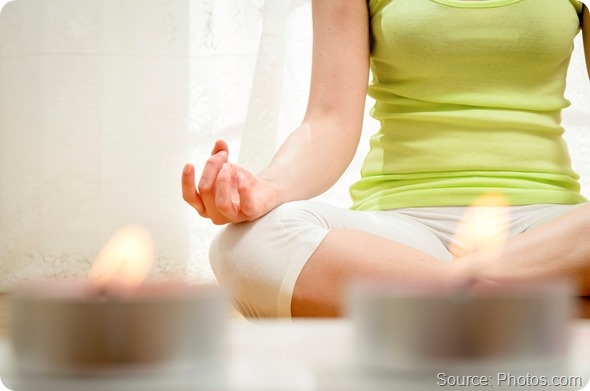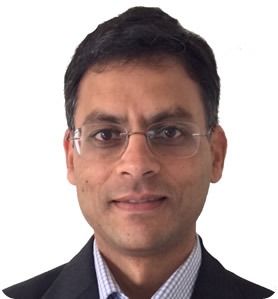We wanted to be broadly inclusive of any kind of meditation program, so we defined a meditation program to be any kind of structured meditation program that involved at a minimum 4 hours of training, with instructions to practice outside the classroom.
Although many types of meditation programs exist, we found that the majority of programs that have been tested in randomized controlled trials (RCTs) were either a mindfulness program such as mindfulness based stress reductions (MBSR) or a mantra type of program such as transcendental meditation (TM).
Some people have the idea that meditation means just sitting quietly and not doing anything. That is not true. It is an active training of the mind to increase awareness, and different meditation programs approach this in different ways.
Before including any therapy into mainstream medical practice, we like for there to be convincing evidence that a therapy will work. We haven't been able to clearly tell if meditation programs provide more than a placebo effect.

What prompted you to analyse the previously published research into meditation and its effect on anxiety and depression?
Many people meditate to reduce psychological stress and stress-related health problems. However, it is not known whether meditation has health benefits beyond the placebo effect. Just as people can get placebo effects from taking a placebo pill, people can also get placebo effects from a program that changes their behavior. We didn't know if meditation has effects that go beyond the placebo effect, and this systematic review was done to answer that question.
What did your review involve?
1. We conducted a systematic review of the literature over a 2 year period to find randomized clinical trials that controlled for placebo effects on any type of meditation program in adults. We looked broadly at 3 domains:
-
any stress-related problem including anxiety, depression, stress/distress, positive mood, mental health-related quality of life, pain and weight
-
any health related behavior that is affected by stress including substance use, eating habits, and sleep.
-
we also looked at the effects on attention, since meditation practices usually involve some skill building in attention.
2. After reviewing almost 20,000 citations, we found 47 RCTs that evaluated a meditation program on diverse patient populations including adults with a mental health problem, chronic pain, substance use, heart disease, cancer, diabetes and a variety of others.
3. We looked at before and after effects, comparing the control arm to the meditation arm, and calculated improvements in the problem. Some of the studies had conflicting results, others had consistent and sometimes strong results. We analyzed all the studies for each of the problems, then assessed how strong the evidence was (high, moderate, low, insufficient) that a particular form of meditation either improves or does not improve that problem.
How did you control for the possibility of placebo effect?
We limited ourselves to randomized clinical trials in which the comparison arm was either the equivalent of a placebo or another known therapy.
What were the main findings of the analysis?
-
We found that the evidence was moderately strong that there is a small but consistent benefit for mindfulness meditation programs to improve 3 symptoms: anxiety, depression, and pain. We found low level evidence that mindfulness meditation helps with symptoms of stress and distress, as well as with the mental health dimension of quality of life.
-
The mental health dimension of quality of life assesses such things as vitality, social functioning, negative and positive feelings, memory or concentration.
-
For the symptoms of anxiety and depression for which we find moderate evidence of benefit, we need to keep in mind that most of the trials didn't study people with a clinical diagnosis of anxiety or depression. Most were studying diverse patient populations who may have had a low level of these symptoms, such as those with breast cancer, fibromyalgia, organ transplant recipients, and caregivers of people with dementia.
-
We found a roughly 10-20% improvement in depressive symptoms compared to the placebo groups. This is similar to the magnitude of effect that other studies have found for the use of antidepressants in similar populations. For anxiety, we found about a 5-10% improvement in anxiety symptoms.
-
Similar to our results for symptoms of anxiety and depression, we found that the evidence was moderately strong that mindfulness meditation programs may improve pain. There weren't as many trials evaluating chronic pain, and so we don't understand what kinds of pain this type of meditation may be most useful for.
In what ways was the review limited?
-
As with many therapies, we try to get a moderate level of confidence that the therapy works before we prescribe it. If we have high level of confidence, it is much better. In our research the maximum strength of evidence we found was moderate for anxiety, depression, and pain; low for some others, and insufficient for the bulk of outcomes we evaluated. This indicates that more studies that are well designed and with appropriate sample sizes are needed to better understand the extent to which these programs have or don't have an effect.
-
While we found that the evidence was moderately strong that mindfulness meditation programs may improve pain, there weren't as many trials evaluating chronic pain, and so we don't understand what kinds of pain this type of meditation may be most useful for.
-
Finally, in the context of Eastern traditions, the meditation programs that were tested were comparatively short, lasting about 8 weeks, and provided relatively small doses of meditation training. We don't know if more meditation practice would result in larger benefits, and this needs to be tested in future research.
What impact do you think this work will have?
We can see that these training programs provide skills that people can use to reduce some very common symptoms. We also see that it is more than simply a placebo effect. I think these results will encourage further discussion, debate, and research in the subject. They may also encourage further use.
What further research is needed into the effects of meditation?
There are many unanswered questions related to the nature and amount of meditation training, and the types of mental health and physical health conditions that may be responsive to it. While we found a small effect of meditation on the symptom of pain, we need studies evaluating different types of pain.
Since many of the studies we evaluated had deficiencies such as small samples or other methodological challenges, better studies that include larger, well defined samples with blinded assessment of study outcomes would be helpful in fully determining the effects of meditation.
Where can readers find more information?
Here are a couple of links to mindfulness information:
If readers are interested in understanding the more traditional practices from which MBSR type of courses are derived, they can visit:
About Dr Madhav Goyal
 Dr. Goyal is interested in the effects of meditation on chronic pain and symptoms, stress, and overall health. He is currently living in Dehradun, India to pursue low cost means to improve chronic symptoms and health in rural India.
Dr. Goyal is interested in the effects of meditation on chronic pain and symptoms, stress, and overall health. He is currently living in Dehradun, India to pursue low cost means to improve chronic symptoms and health in rural India.
He has an interest in ethics, and has published studies on the ethics of selling kidneys in India, as well as ways to reduce corruption in health care in India through randomized trials. He is a practicing internist.